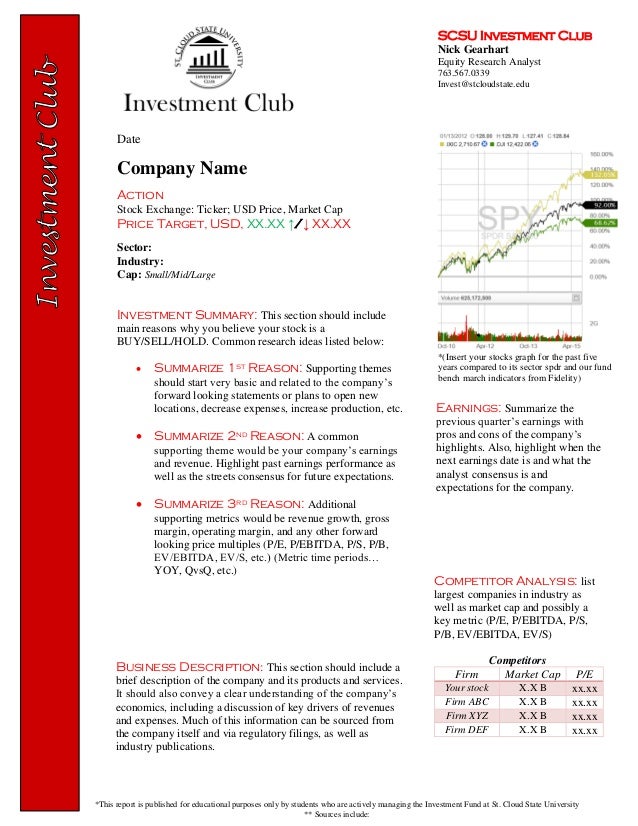Improving The Investment Game with Stock Evaluation
In the current dynamic financial landscape, charting the world of investments can be a daunting challenge. With markets continuously fluctuating and new opportunities emerging daily, making informed decisions is vital than ever. This is where equity analysis comes into play. By utilizing the expertise of equity analysis specialists, investors can gain essential insights that enhance their investment strategies and ultimately lead to a more secure journey in the intricate waters of the stock market.
Equity analysis involves a comprehensive evaluation of a company's financial health, market position, and growth potential. This diligent process goes beyond merely looking at numbers; it provides a well-rounded view of a company's prospects. Equity analysis specialists have the skills and experience to sift through vast amounts of data, identify trends, and pinpoint key factors that can substantially impact investment outcomes. By collaborating with these professionals, investors can strategically place themselves to capitalize on opportunities and mitigate risks, thus sharpening their overall investment game.
Understanding Stock Analysis
Stock analysis is a crucial component of investment strategy, focusing on the evaluation of a company's shares to ascertain its value and potential for growth. Shareholders employ a variety of metrics and methodologies to evaluate a company's financial health, market standing, and earnings prospects. This analysis allows investors to make informed decisions about purchasing, retaining, or divesting shares in a company.

The process typically entails both numerical and qualitative assessments. Numerical analysis reviews financial statements, key ratios, and historical data to derive insights about results and profitability. Qualitative analysis looks beyond the numbers, considering factors such as management excellence, industry trends, and competitive edges. Together, these approaches can provide a complete picture of a company's capability in the market.
Engaging with equity analysis experts can enhance an investor's comprehension and execution of these principles. These professionals bring specialized knowledge and sophisticated tools to analyze complex data and spot opportunities that may not be readily visible. By utilizing their insights, investors can elevate their strategies and achieve better results in their equity investments.
Key Metrics for Evaluation
During conducting equity analysis, comprehending key financial metrics is essential for making wise investment decisions. One of the key indicators is the Price-to-Earnings (P/E) ratio, that compares a company’s current share price to its earnings per share. A significant P/E ratio may indicate that the market forecasts future growth, while a low ratio might suggest that the stock is overlooked or that the company is experiencing difficulties. Analyzing the P/E ratio in the context of industry averages can provide more profound insights into a company's valuation.
Another important metric is the Return on Equity (ROE), which measures a company's profitability relative to shareholders' equity. A high ROE indicates proficient management in utilizing equity financing to produce profits. It allows investors to evaluate how well their investment is being used to yield earnings. Comparing ROE among rivals can reveal which companies are performing better or worse within the similar sector, aiding in making comparative assessments.
In conclusion, the Debt-to-Equity (D/E) ratio is vital for understanding a company’s financial leverage. This ratio compares a company's total liabilities to its shareholder equity, reflecting the relative proportion of debt used to fund the company's assets. A elevated D/E ratio can indicate greater risk, especially in unstable markets, while a lower ratio typically suggests a more conservative approach to financing. Evaluating the D/E ratio alongside industry norms helps investors assess the risk profile of a company, enabling for more strategic investment choices.
Crafting an Asset Strategy
Designing a robust financial plan requires a detailed methodology that begins with meticulous stock analysis. Understanding the essentials of the businesses within your portfolio aids to determine which equities have significant ability for growth. This entails reviewing financial statements, revenue trends, earnings statements, and economic conditions. By utilizing the knowledge of equity evaluation experts, individuals can gain detailed understanding that might not be clear from cursory analysis alone.
Alongside reviewing separate shares, it is important to take into account industry patterns and economic indicators that could affect total performance. Stock evaluation specialists are skilled at identifying patterns and making connections between market mood and stock valuations. By synthesizing this information, they can assist investors revise their strategies in actual situations, reducing hazards and taking advantage on emerging opportunities. equity research report -thinking strategy is essential for keeping a advantage edge in volatile markets.
Finally, setting specific financial goals is important to formulating an efficient plan. Whether your aim is to achieve prolonged appreciation, generate income through dividends, or diversify your holdings, an equity evaluation specialist can customize recommendations to fit your financial objectives. By blending personal goals with specialist advice, investors can create a balanced approach that aligns with both market conditions and personal preferences, leading to more informed and strategic financial choices.